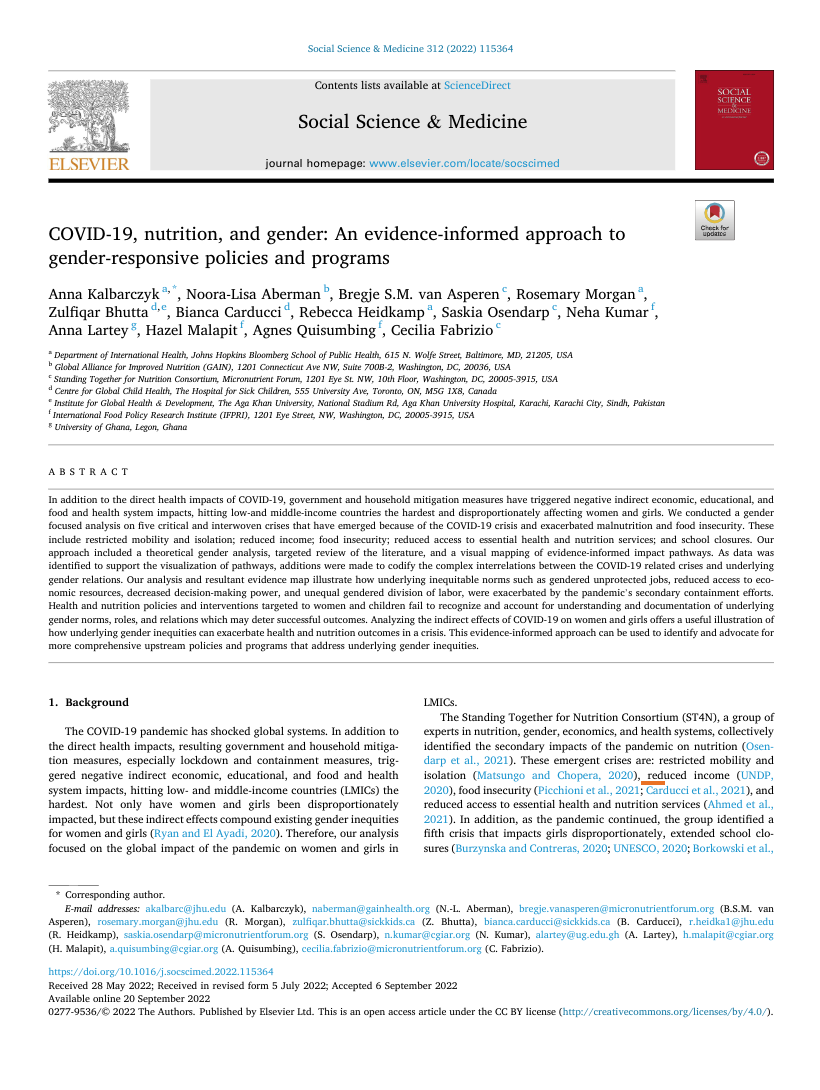Abstract
In addition to the direct health impacts of COVID-19, government and household mitigation measures have triggered negative indirect economic, educational, and food and health system impacts, hitting low-and middle-income countries the hardest and disproportionately affecting women and girls. We conducted a gender focused analysis on five critical and interwoven crises that have emerged because of the COVID-19 crisis and exacerbated malnutrition and food insecurity. These include restricted mobility and isolation; reduced income; food insecurity; reduced access to essential health and nutrition services; and school closures. Our approach included a theoretical gender analysis, targeted review of the literature, and a visual mapping of evidence-informed impact pathways. As data was identified to support the visualization of pathways, additions were made to codify the complex interrelations between the COVID-19 related crises and underlying gender relations. Our analysis and resultant evidence map illustrate how underlying inequitable norms such as gendered unprotected jobs, reduced access to economic resources, decreased decision-making power, and unequal gendered division of labor, were exacerbated by the pandemic’s secondary containment efforts. Health and nutrition policies and interventions targeted to women and children fail to recognize and account for understanding and documentation of underlying gender norms, roles, and relations which may deter successful outcomes. Analyzing the indirect effects of COVID-19 on women and girls offers a useful illustration of how underlying gender inequities can exacerbate health and nutrition outcomes in a crisis. This evidence-informed approach can be used to identify and advocate for more comprehensive upstream policies and programs that address underlying gender inequities.
Anna Kalbarczyk, Noora-Lisa Aberman, Bregje S.M. van Asperen, Rosemary Morgan, Zulfiqar Bhutta, Bianca Carducci, Rebecca Heidkamp, Saskia Osendarp, Neha Kumar, Anna Lartey, Hazel Malapit, Agnes Quisumbing, Cecilia Fabrizio, COVID-19, nutrition, and gender: An evidence-informed approach to gender-responsive policies and programs, Social Science & Medicine, Volume 312, 2022, 115364, ISSN 0277-9536, https://doi.org/10.1016/j.socscimed.2022.115364.






